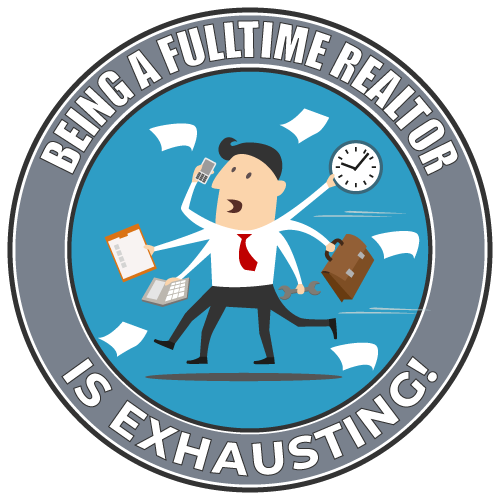
You can earn passive income through real estate in many ways. Among these are renting property, House flipping, REITs, and Peer-to-peer lending. This article will explain the basics and how to make passive income with real estate. If you have limited funds, use these tips to make your investment a success. Continue reading to discover more about passive income through real estate. In just a few easy steps you will be able achieve your real-estate goals.
Properties to rent
Renting out properties is a good way to make passive income from real property. While you should carefully choose tenants to avoid trouble, there are a few things to keep in mind to ensure that you're generating the most income. Additionally to carefully screening potential tenants, it is also important to be on the lookout for vacant homes. You could lose money, have to go through a long eviction process or even face a lawsuit if you don't screen prospective tenants properly.

Flipping houses
There are many sources of passive income that house flipping can bring you passive income. It is possible to flip vacant properties, rental properties, and fixer-uppers to generate passive income. These homes can be turned into fully-renovated, fully-rented rental properties or turnkey rental homes. The property can be rented out to new owners who will manage the rental income. House flipping is a popular, lucrative way to earn passive income. The process is streamlined with technology.
Peer-to-peer lending
Passive income investment options can vary when it is about investing in real estate. Apartment buildings, on the other hand, are more complex and require more attention. Single-family homes, however, can be managed by one person. Other than the rent, you'll need to cover property management, insurance, and oversee the maintenance of the units. A storage facility investment can provide passive income in addition to real estate investments. These properties are in high demand in almost every US region. You can also generate passive income from leasing your space to tenants.
REITs
For the average investor, passive income from real estate REITs is a great way to diversify their portfolios. These securities have low investment costs, with a unit costing as little as $500. However, if you are looking to earn income from real estate, these REITs must give at least 90% of their taxable income back to shareholders. This leaves less money to reinvest. This article will explain why passive income from REITs in real estate is such a great way.

Storage facilities
If you have a self-service storage facility, you can generate passive income from year-round business. Some areas, like Quebec and Canada, have seasonal needs, but there is always a demand for more space. Depending on the location, you can expect to have a mix of different customers all year round. Listed below are some ideas for revenue-generating ideas for storage facilities. Although some of these ideas will require you to put in a lot of effort and time, they will bring you steady income.
FAQ
What amount of money can I get for my house?
It depends on many factors such as the condition of the home and how long it has been on the marketplace. The average selling price for a home in the US is $203,000, according to Zillow.com. This
What is a "reverse mortgage"?
A reverse mortgage allows you to borrow money from your house without having to sell any of the equity. It works by allowing you to draw down funds from your home equity while still living there. There are two types available: FHA (government-insured) and conventional. You must repay the amount borrowed and pay an origination fee for a conventional reverse loan. FHA insurance will cover the repayment.
Is it better for me to rent or buy?
Renting is usually cheaper than buying a house. However, renting is usually cheaper than purchasing a home. A home purchase has many advantages. For example, you have more control over how your life is run.
How can I repair my roof?
Roofs can burst due to weather, age, wear and neglect. For minor repairs and replacements, roofing contractors are available. Get in touch with us to learn more.
How do I calculate my interest rates?
Market conditions influence the market and interest rates can change daily. The average interest rate over the past week was 4.39%. To calculate your interest rate, multiply the number of years you will be financing by the interest rate. If you finance $200,000 for 20 years at 5% annually, your interest rate would be 0.05 x 20 1.1%. This equals ten basis point.
Can I buy a house without having a down payment?
Yes! There are many programs that can help people who don’t have a lot of money to purchase a property. These programs include FHA loans, VA loans. USDA loans and conventional mortgages. Visit our website for more information.
Statistics
- It's possible to get approved for an FHA loan with a credit score as low as 580 and a down payment of 3.5% or a credit score as low as 500 and a 10% down payment.5 Specialty mortgage loans are loans that don't fit into the conventional or FHA loan categories. (investopedia.com)
- The FHA sets its desirable debt-to-income ratio at 43%. (fortunebuilders.com)
- When it came to buying a home in 2015, experts predicted that mortgage rates would surpass five percent, yet interest rates remained below four percent. (fortunebuilders.com)
- This means that all of your housing-related expenses each month do not exceed 43% of your monthly income. (fortunebuilders.com)
- Some experts hypothesize that rates will hit five percent by the second half of 2018, but there has been no official confirmation one way or the other. (fortunebuilders.com)
External Links
How To
How to Manage A Rental Property
While renting your home can make you extra money, there are many things that you should think about before making the decision. We will show you how to manage a rental home, and what you should consider before you rent it.
Here are the basics to help you start thinking about renting out a home.
-
What do I need to consider first? You need to assess your finances before renting out your home. If you have outstanding debts like credit card bills or mortgage payment, you may find it difficult to pay someone else to stay in your home while that you're gone. Your budget should be reviewed - you may not have enough money to cover your monthly expenses like rent, utilities, insurance, and so on. ), it might not be worth it.
-
How much does it cost to rent my home? It is possible to charge a higher price for renting your house if you consider many factors. These include things like location, size, features, condition, and even the season. Remember that prices can vary depending on where your live so you shouldn't expect to receive the same rate anywhere. Rightmove has found that the average rent price for a London one-bedroom apartment is PS1,400 per mo. This means that if you rent out your entire home, you'd earn around PS2,800 a year. While this isn't bad, if only you wanted to rent out a small portion of your house, you could make much more.
-
Is this worth it? There are always risks when you do something new. However, it can bring in additional income. It is important to understand your rights and responsibilities before signing anything. Renting your home won't just mean spending more time away from your family; you'll also need to keep up with maintenance costs, pay for repairs and keep the place clean. Make sure you've thought through these issues carefully before signing up!
-
Are there any benefits? You now know the costs of renting out your house and feel confident in its value. Now, think about the benefits. Renting out your home can be used for many reasons. You could pay off your debts, save money for the future, take a vacation, or just enjoy a break from everyday life. It is more relaxing than working every hour of the day. Renting could be a full-time career if you plan properly.
-
How can I find tenants Once you've made the decision that you want your property to be rented out, you must advertise it correctly. Start by listing online using websites like Zoopla and Rightmove. Once potential tenants reach out to you, schedule an interview. This will allow you to assess their suitability, and make sure they are financially sound enough to move into your house.
-
What are the best ways to ensure that I am protected? If you fear that your home will be left empty, you need to ensure your home is protected against theft, damage, or fire. You will need insurance for your home. This can be done through your landlord directly or with an agent. Your landlord will likely require you to add them on as additional insured. This is to ensure that your property is covered for any damages you cause. This does not apply if you are living overseas or if your landlord hasn't been registered with UK insurers. In such cases you will need a registration with an international insurance.
-
You might feel like you can't afford to spend all day looking for tenants, especially if you work outside the home. It's important to advertise your property with the best possible attitude. A professional-looking website is essential. You can also post ads online in local newspapers or magazines. It is also necessary to create a complete application form and give references. Some people prefer to do the job themselves. Others prefer to hire agents that can help. You'll need to be ready to answer questions during interviews.
-
What happens once I find my tenant You will need to notify your tenant about any changes you make, such as changing moving dates, if you have a lease. You can negotiate details such as the deposit and length of stay. Keep in mind that you will still be responsible for paying utilities and other costs once your tenancy ends.
-
How do I collect the rent? When it comes to collecting the rent, you will need to confirm that the tenant has made their payments. If not, you'll need to remind them of their obligations. After sending them a final statement, you can deduct any outstanding rent payments. If you are having difficulty finding your tenant, you can always contact the police. If there is a breach of contract they won't usually evict the tenant, but they can issue an arrest warrant.
-
How can I avoid potential problems? It can be very lucrative to rent out your home, but it is important to protect yourself. Consider installing security cameras and smoke alarms. Also, make sure you check with your neighbors to see if they allow you to leave your home unlocked at night. You also need adequate insurance. You should not allow strangers to enter your home, even if they claim they are moving in next door.